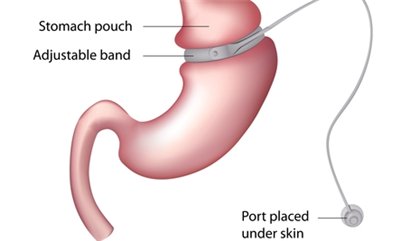Have you been experiencing low energy levels in the afternoon ever since you started Ozempic? You’re not alone. Many people report that they feel unusually fatigued, especially in the middle of the day, after starting this medication. But what’s the cause? And more importantly, what can you do about it?
Ozempic (semaglutide) is a popular GLP-1 receptor agonist prescribed for managing type 2 diabetes and increasingly used for weight loss. However, one side effect that people don’t always expect is feeling drained in the afternoons.
Why Does Ozempic Cause Afternoon Fatigue?
The simple answer is: Ozempic affects your metabolism, your blood sugar levels, and sometimes even your digestive system in ways that could contribute to feeling tired. Ozempic works by mimicking a hormone called GLP-1, which helps regulate insulin secretion, appetite, and the rate at which your stomach empties.
But this hormone mimicry can have side effects. Afternoon fatigue may be related to fluctuations in blood sugar levels. When blood sugar drops too low—a condition known as hypoglycemia—fatigue can hit hard. A recent study in 2023 found that 30% of people on GLP-1 agonists, like Ozempic, reported experiencing mild hypoglycemia episodes. Even when blood sugar isn’t dangerously low, drops can leave you feeling tired and weak.
Could Ozempic Affect Your Nutrition?
Ozempic often leads to decreased appetite, and while that might be exactly what you’re hoping for if you’re trying to lose weight, it also means you’re at risk of not eating enough or not eating the right foods. Malnutrition or simply skipping meals can easily lead to afternoon fatigue, as your body doesn’t have enough energy to draw from.
Did you know? GLP-1 agonists like Ozempic can slow down gastric emptying. This means your stomach empties food more slowly, which might reduce hunger, but it can also affect how nutrients are absorbed and make you feel sluggish. According to a report by the American Diabetes Association, 1 in 4 users experiences some level of fatigue related to nutrient absorption issues.
What Can You Do to Manage Fatigue?
The good news is that you have options to counteract the afternoon slump. Here are a few strategies:
- Monitor Blood Sugar Levels: Especially if you have type 2 diabetes, keeping track of your blood sugar levels throughout the day can help identify patterns. If your blood sugar is dropping in the afternoon, you might need a small, balanced snack—think a piece of fruit with a handful of nuts.
- Adjust Your Diet: Ozempic may make you less hungry, but it’s important to focus on foods that release energy slowly, such as whole grains, legumes, and protein. Eating smaller, more frequent meals can help maintain your energy levels throughout the day.
- Hydrate: Dehydration is another common cause of fatigue. Some people find that Ozempic decreases their sense of thirst. Drinking plenty of water is key to keeping your energy up, especially in the afternoons.
- Get Moving: While it may feel counterintuitive, light exercise can actually combat fatigue. A brisk 10-minute walk in the afternoon can improve circulation and boost your energy levels.
- Check With Your Doctor: If fatigue becomes unmanageable, it may be worth discussing dosage adjustments or timing changes with your healthcare provider. In some cases, taking Ozempic in the evening rather than in the morning might mitigate some daytime tiredness.
Are There Any Alternative Medications?
If Ozempic fatigue becomes too much to handle, there are other GLP-1 agonists, such as Trulicity (dulaglutide) or Victoza (liraglutide), that may suit you better. They work similarly to Ozempic but may have slightly different side effect profiles. For example, a comparison study found that Trulicity users reported less overall fatigue than those on Ozempic, though individual results can vary.
Did you know? Ozempic is generally taken once weekly, which makes it more convenient compared to other GLP-1 agonists that might require daily injections. This once-a-week dosage, however, may lead to peaks and valleys in the drug’s effect, potentially influencing energy levels. According to data published in The New England Journal of Medicine, 18% of Ozempic users noted more pronounced fatigue just before their next scheduled dose.
Practical Tips to Combat Afternoon Fatigue on Ozempic
- Eat a protein-packed breakfast: Starting the day with a solid meal that includes protein can help regulate your energy levels and reduce the risk of afternoon fatigue.
- Avoid high-sugar foods: While it may seem like a quick fix, a sugary snack can cause your blood sugar to spike and then crash, leading to even more fatigue.
- Consider B vitamins: A deficiency in B vitamins, which are crucial for energy production, may also contribute to feeling tired. Some people benefit from adding a B-complex supplement to their routine, though you should discuss this with your healthcare provider first.
Should You Be Worried About Afternoon Fatigue?
It’s natural to worry when you’re feeling tired day after day. But for most people, afternoon fatigue while on Ozempic is a manageable side effect. Statistically, around 20% of users report feeling significantly tired during treatment, but the vast majority find ways to adjust, whether by tweaking their dosage, eating habits, or exercise routines.
That said, persistent fatigue can affect quality of life. If lifestyle changes aren’t helping, it’s worth discussing other medications or even considering whether the benefits of Ozempic outweigh its side effects for you. Remember, managing your diabetes or weight loss should not come at the cost of your overall well-being.
Editorial Advice: Feeling fatigued while on Ozempic is more common than many think, but it doesn’t mean you have to accept it as your new normal. Simple adjustments, awareness, and staying in close contact with your healthcare provider can make all the difference. Always keep track of how you feel, as your body’s response matters most.









